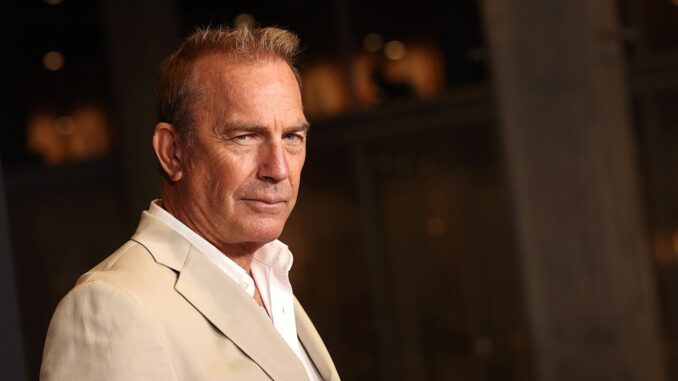
The Echo in the Empty Saddle: Kevin Costner Breaks Silence
For months, a quiet tremor ran through the vast, cinematic landscape of Yellowstone, a ripple emanating from the very heart of the Dutton Ranch. It wasn't the thundering hooves of a thousand head of cattle, nor the sharp crack of a rifle shot across the Montana plains, but something far more insidious: whispers. Whispers about Kevin Costner, the stoic, weather-beaten patriarch, John Dutton himself, potentially riding off into a sunset not of his character’s choosing, but of Hollywood’s unforgiving whims. The silence from the man himself, a silence as profound as the Montana wilderness before a storm, only amplified the growing cacophony of speculation. Then, with the deliberate cadence of a man who has weighed his words as carefully as he has his land, Costner finally spoke, and the echo of that long-awaited declaration reverberated through a fandom held captive by uncertainty.
To understand the weight of Costner’s silence and the subsequent breaking of it, one must first grasp the symbiotic relationship forged between the actor and the role. Kevin Costner is not merely an actor in Yellowstone; he is its bedrock. For a generation, he has been the cinematic embodiment of the mythic American West – the lone rider, the steadfast leader, the man of few words whose convictions are as unyielding as the mountains. From Dances With Wolves to Open Range, his gravitas has lent authenticity to the rugged, often brutal, poetry of the frontier. John Dutton, the embattled patriarch fighting to preserve his family’s legacy against the relentless tide of modernity, was a role perfectly sculpted for Costner’s seasoned visage and inherent nobility. He gave the show its beating heart, its sense of enduring tradition, and the very moral compass around which its violent, often morally ambiguous, world revolved. The idea of Yellowstone without Costner was akin to the Dutton Ranch without its sprawling acreage – unimaginable, diminished, perhaps even untenable.
The rumors, therefore, did not merely concern an actor’s contract dispute; they struck at the very soul of the series. They whispered of scheduling conflicts, of creative differences, of a star’s growing impatience with a demanding production schedule. They spread like wildfire through online forums and entertainment news outlets, fueled by anonymous sources and the hungry maw of public curiosity. Each new season announcement, each cast photo, was scrutinized for hints of his presence or conspicuous absence. His continued silence, while perhaps professionally prudent, became a void into which fans poured their anxieties. It was a vacuum that Taylor Sheridan, the show’s prolific creator, could not entirely fill, nor could the compelling performances of the supporting cast wholly distract from. The question wasn't if John Dutton would face his demise, but how and why, and whether the man who breathed life into him would even be there to see it through.
Then, the dam broke. Not with an explosive interview, but with a statement, often delivered within the context of legal proceedings or carefully managed press. Costner’s words, when they finally arrived, carried the weight of a man who prefers action to pronouncements. They confirmed the end, not with bitterness or lengthy explanation, but with a weary finality. The details, as often is the case in Hollywood’s opaque dealings, remained largely obscured behind the curtain of "creative differences" and "scheduling conflicts." But the essence was clear: the iconic hat, the well-worn boots, and the stoic gaze of John Dutton would, for Costner, ride no more.
The breaking of silence wasn't a roar, but a definitive sigh. It didn't solve all mysteries, but it brought a painful clarity. It confirmed what many had feared but hoped against: the inevitability of change, even for an empire as seemingly immutable as the Duttons'. For fans, it was the echo of an empty saddle, a stark reminder that even the most enduring fictions are bound by the very real, often prosaic, machinations of business and personal ambition. Costner’s departure, framed by his eventual, if understated, acknowledgment, transformed the rumors from speculative whispers into a confirmed, unsettling ripple across the landscape of television. It underscored the fragile alchemy that creates beloved stories, where the magic of performance meets the harsh realities of contracts, egos, and the relentless march of time, leaving audiences to ponder what remains when the irreplaceable part of a beloved whole finally rides away.
